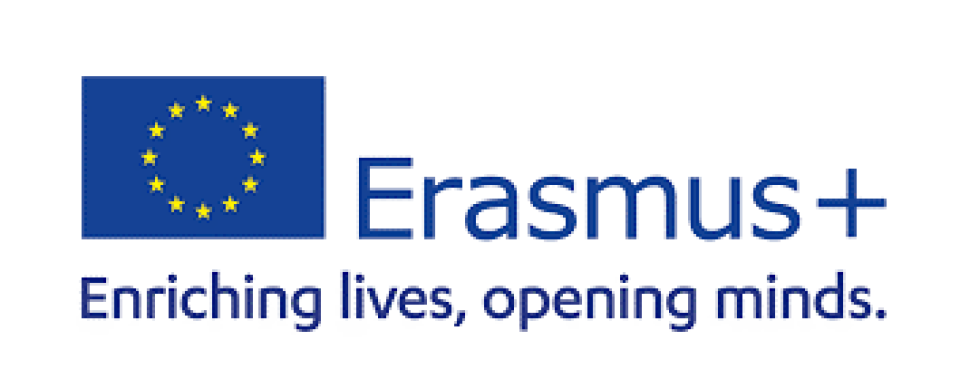
Research Newsletter - Issue 79: Erasmus Feature
Erasmus+ is the flagship EU funding programme for education and training. First launched in 1987 as an exchange programme for students in higher education, it now offers a wide range of cooperation opportunities for institutions and organisations across civil society.
The European Commission has now launched the 2023 Call with a budget of €4.2 billion for the coming year.

Erasmus+ Logo
The Programme aims to contribute to sustainable growth, quality jobs and social cohesion, to driving innovation, and to strengthening European identity and active citizenship. It prioritises inclusion and diversity; digital transformation; and the environment and the fight against climate change.
Why do Erasmus+?
Erasmus+ projects provide opportunities to develop and implement ideas and practices in an international – and often inter-sectoral - consortium. As well as benefiting from funding to support the activities within the project, participants have found that participating in E+ projects helped them to develop a public profile and led to publications and further research and funding activities.
Erasmus+ at DCU
DCU performs strongly in Erasmus+ and enjoyed outstanding success in 2021, when 74% of proposals submitted were awarded. Awards so far in 2022 reflect ongoing success, including for many first-time applicants.
The range of topics that can be addressed through an Erasmus+ project is very open, and we see a particularly rich diversity of subject areas in DCU’s awards. EU environmental governance, mental health in the older population, and technological training in Pakistan are a few examples covered by some of our latest awards. Many projects focus on innovation in teaching & learning, such as a new project in the School of Language, Literacy & Early Childhood Education that brings together the expertise in primary education of partners within ECIU (European Consortium of Innovative Universities). The ECIU itself - a collaboration between 13 European universities for innovation in both education and research activities - successfully applied for E+ funding for its second phase of development under the Commission’s flagship European Universities initiative.
Erasmus+ Key Actions
Erasmus+ activities fall under 3 ‘Key Actions’ and focus on one of the following fields: Education and Training (including: Higher Education; School Education; Adult Education; Vocational Education & Training); Sports; Youth.
Key Action 1: Learning Mobility of Individuals. This covers the individual mobility for students and staff, which is managed at DCU by our Placement Office
Key Action 2: Cooperation among Organisations and Institutions. This Key Action supports the development, transfer and implementation of innovative practices at organisational, local, regional, national, or European levels. It is about modernising and advancing the quality of systems and approaches in the chosen field and improving key competences and skills.
Key Action 3: Support to policy development and cooperation. Participants in projects under this action contribute to the development and implementation of policies at EU level, often triggering modernisation and reforms. This Key Action includes the Jean Monnet actions.
See the Funding Opportunities section of the newsletter for further information links and deadline dates.
Support for your Erasmus+ Application
Guidance and information for prospective applicants is provided by DCU’s Erasmus+ Development Officer.
Dr Sophie Ball will run a series of events through 2023 to support staff to submit successful funding applications. At the first event on 11th January (10.00-11.00), an overview of the funding opportunities will be provided, with guidance on how to prepare a successful application. Please register here.
The presentations and recordings of the webinars run for the 2022 Call are a useful resource that you can access at any time. The 4 x 1 hour-long sessions include a general introduction for newcomers to the programme, a focus on the Erasmus Mundus action, and a how-to guide on preparing an application.
Please don't hesitate to reach out to Dr Sophie Ball to find out more about the Erasmus+ programme or to discuss your ideas for a project: sophie.ball@dcu.ie
